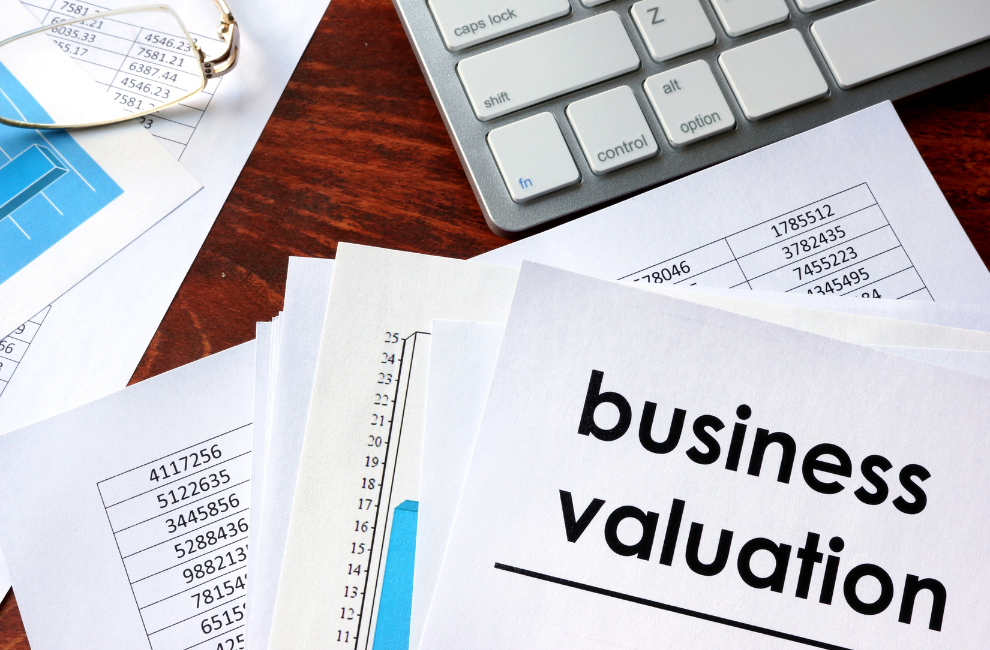How To Find A Broker To Sell Your Business
Understanding the Role of a Business Broker
What Does a Business Broker Do?
A business broker acts as an intermediary between a business owner and potential buyers. Their primary role is to facilitate the sale of businesses by handling various aspects of the transaction process. They provide valuable expertise and resources that can help business owners achieve a successful sale.
- Market Analysis: Assessing the business's value and market position.
- Preparation: Helping to prepare the business for sale, including financial statements and business plans.
- Marketing: Creating and implementing a strategy to attract potential buyers.
- Negotiations: Assisting in negotiating terms and conditions of the sale.
- Closing: Guiding both parties through the closing process and legal requirements.
A business broker's involvement can significantly streamline the sale process, ensuring that all parties' interests are represented and that the transaction is completed efficiently and professionally.
Benefits of Hiring a Broker
Hiring a business broker in Sunnyvale can significantly streamline the process of selling your business. Brokers bring expertise and resources that most business owners do not possess, which can be crucial for a successful sale.
- Confidentiality: Brokers maintain the confidentiality of the sale, allowing you to focus on running your business without the market knowing it's for sale.
- Valuation Knowledge: They have the tools and knowledge to value your business accurately, ensuring you get a fair price.
- Qualified Buyers: Brokers have access to a network of potential buyers, increasing the chances of finding the right match.
- Negotiation Skills: Their negotiation skills can be invaluable in securing the best deal possible.
A broker's involvement can also help in keeping the emotional aspects of the sale at bay, providing a buffer between the seller and the buyer. This can prevent hasty decisions and ensure that the business is sold for its true worth.
When Should You Consider a Broker?
Deciding when to engage a business broker is a pivotal step in the process of selling your business. A broker becomes essential when the complexities of the sale exceed your expertise or available time. For instance, if you're unfamiliar with market valuations, legal requirements, or negotiation tactics, a broker's experience can be invaluable.
- You lack the time to fully commit to the sales process.
- You're not experienced in selling businesses.
- You want to maintain confidentiality during the sale.
- You're seeking to maximize the sale price through expert valuation and negotiation.
Engaging a broker early in the sale process can help set a clear path forward and ensure that all necessary steps are taken to achieve a successful sale. It's important to recognize that a broker's involvement can significantly influence the outcome of your business sale.
Preparing to Engage a Broker
Evaluating Your Business's Readiness
Before engaging with business brokers in Sunnyvale, it's crucial to assess whether your business is primed for sale. A thorough small business valuation in Sunnyvale is the cornerstone of this readiness, providing a clear picture of what your business is worth and how it might be perceived by potential buyers.
- Review financial statements for the past three years
- Analyze market position and competition
- Assess the condition of physical assets
- Identify any legal or compliance issues
Ensuring your business is in top shape before listing it for sale will not only attract serious buyers but also command a higher price. It's about presenting your business in the best possible light to maximize its value.
Remember, the goal is to make your business as attractive as possible to potential buyers. This involves more than just a financial assessment; it includes making sure that operations are running smoothly, that there are no unresolved legal matters, and that the business has a solid strategic position in the market.
Gathering Necessary Documentation
Before engaging a broker, it's crucial to compile all the necessary documentation that will be required throughout the sales process. This step is fundamental in presenting your business accurately and professionally to potential buyers.
- Financial statements for the past three years
- Tax returns for the business
- List of assets included in the sale
- Legal documents such as leases, contracts, and agreements
- Organizational chart and employee information
- Details of existing customer and supplier relationships
Ensuring that all your documentation is thorough and up-to-date will streamline the sales process and help avoid delays. It's also an opportunity to review your business's financial health and address any issues that could impact the sale.
Remember, the quality and organization of your documentation can significantly influence a broker's ability to market your business effectively. Take the time to verify that all records are accurate and reflect your business's current situation.
Setting Realistic Expectations
When preparing to sell your business, setting realistic expectations is crucial for a successful transaction. It's important to understand that the market will dictate the value of your business, not your emotional attachment or the hard work you've put in.
- Assess the current market conditions for businesses similar to yours.
- Consider the financial health of your business and its growth potential.
- Be prepared for negotiations and the possibility of making concessions.
Remember, a broker can provide a valuation and help set realistic price expectations, but ultimately, the market will influence the final sale price.
By aligning your expectations with market realities, you'll be better positioned to make informed decisions throughout the sales process. This approach can help prevent disappointment and ensure that you and your broker are working towards the same goals.
Selecting the Right Broker for Your Business
Criteria for Choosing a Broker
Selecting the right broker is a pivotal decision in the process of selling your business. The broker's experience in your industry and track record of successful sales are paramount. It's essential to consider their professional credentials, such as licensing and membership in industry associations, which can be indicators of their commitment to ethical practices and ongoing professional development.
- Reputation: Look for brokers with positive testimonials and a strong presence in the business community.
- Network: A broker with a wide network can more effectively market your business.
- Fees: Understand their fee structure and ensure it aligns with your expectations.
- Communication: Choose someone who communicates clearly and frequently.
It's not just about finding a broker; it's about finding the right partner for one of the most significant transactions of your life. A broker should not only be adept at finding potential buyers but also at guiding you through the complex process of selling your business, ensuring that you feel supported and informed at every step.
Researching Potential Brokers
Once you've determined the criteria for choosing a broker, the next step is to conduct thorough research. Start by compiling a list of brokers who specialize in your industry and have a proven track record of successful business sales.
- Look for reviews and testimonials from past clients.
- Check their credentials and memberships in professional associations.
- Consider their geographical reach and understanding of the local market.
It's essential to assess each broker's experience and reputation in the market to ensure they can meet your specific needs.
After narrowing down your list, examine each broker's website and marketing materials. This will give you insight into their professionalism and the way they present businesses for sale. Remember, the broker you choose will be representing your business to potential buyers, so their approach should align with your expectations and business values.
Interviewing and Comparing Brokers
Once you have a shortlist of potential brokers, the next step is to conduct interviews. This is your opportunity to assess each broker's experience, expertise, and fit for your business. Prepare a list of questions that cover their track record, marketing strategies, and communication style.
- How many businesses similar to yours have they sold?
- What is their process for valuing a business?
- Can they provide references from past clients?
- How do they plan to market your business?
- What are their fees and contract terms?
After the interviews, compare the brokers based on their responses, your level of comfort with them, and their proposed strategies. Consider creating a comparison chart to help visualize the differences:
BrokerExperienceMarketing StrategyFeesA10 yearsComprehensive10%B5 yearsOnline-focused12%C8 yearsLocal & Online15%
Remember, the right broker should not only be skilled in selling businesses but also be someone you can trust and communicate with effectively throughout the sales process.
Working Effectively with Your Chosen Broker
Establishing Clear Communication
Clear communication is the cornerstone of any successful relationship between a business owner and a broker. Establishing a mutual understanding of goals, expectations, and processes is essential from the outset to ensure a smooth sale process.
- Define the primary objectives for the sale
- Agree on the frequency and methods of communication
- Set clear milestones and timelines for the sale process
It's important to maintain regular check-ins to monitor progress and address any concerns promptly. This proactive approach can prevent misunderstandings and keep the sale on track.
By creating a communication plan that includes regular updates and feedback loops, both parties can stay informed and aligned throughout the sale. This plan should outline who will be the main point of contact, the preferred communication channels, and how often updates will be provided.
Understanding the Broker's Marketing Strategy
A business broker's marketing strategy is pivotal in attracting the right buyers and securing the best possible deal for your business. Understanding this strategy is crucial to ensure that your business is presented in the best light and to the most appropriate audience.
- Target Market: Identifying the right target market is the first step in a broker's marketing strategy.
- Sales Channels: Utilizing various sales channels, from online platforms to industry networks, maximizes exposure.
- Marketing Materials: High-quality marketing materials like business summaries and financial reports are essential.
It's important to discuss and agree upon the marketing approach before launching the campaign to ensure alignment with your business goals and values.
Regular updates and feedback loops will help you stay informed about the progress and effectiveness of the marketing efforts. This transparency allows for timely adjustments to the strategy, ensuring that your business reaches the most suitable potential buyers.
Navigating Negotiations and Offers
Navigating negotiations and offers is a critical phase where the broker's expertise becomes invaluable. The goal is to secure the best possible deal while maintaining a good relationship with the buyer. It's important to understand that negotiations can be complex and may involve several rounds of back-and-forth discussions.
- Prepare for negotiations by reviewing all offers carefully.
- Consider all aspects of the offer, not just the price.
- Be ready to compromise on certain points to reach a mutually beneficial agreement.
During this stage, patience and clear-headed decision-making are key. Your broker will guide you through the intricacies of the process, ensuring that your interests are well-represented.
Remember that the initial offer is often not the final one. Your broker will help you evaluate the terms and conditions attached to each offer, which may include payment structures, contingencies, and timelines. It's essential to weigh these factors alongside the purchase price to determine the overall value of the deal.
Finalizing the Sale and Transition
Closing the Deal
Closing the deal is the culmination of the business sale process. It's a critical phase where all parties come together to finalize the transaction. To ensure a smooth closing, consider the following steps:
- Review all legal documents with your attorney to ensure accuracy and completeness.
- Confirm that all financial transactions are cleared, including the payment of any outstanding debts or liens.
- Transfer all necessary licenses, permits, and registrations to the new owner.
- Schedule a final meeting to sign all closing documents and hand over the keys.
It's essential to be thorough during this stage to avoid any post-sale disputes or legal issues. Both the seller and the buyer should leave the closing table with a clear understanding of the terms and any future obligations.
After the deal is closed, take the time to notify your employees, customers, and suppliers about the change in ownership. This communication is vital for maintaining the business's operations and reputation during the transition period.
Managing Post-Sale Transition
After the finalization of a business for sale Sunnyvale transaction, managing the post-sale transition is crucial for both the seller and the buyer. Ensuring a smooth handover is key to maintaining the business's operations and reputation.
- Communicate with the new owner to outline ongoing responsibilities.
- Provide training and support during the initial period after the sale.
- Transfer all relevant knowledge, including customer relationships and supplier agreements.
The post-sale transition period is an opportunity to solidify the legacy of your business, making sure it continues to thrive under new ownership.
It's important to establish a timeline for the transition and adhere to it, allowing for a structured shift in control. This phase often involves the seller assisting the buyer in understanding the intricacies of the business, which can range from operational practices to customer service philosophies.
Evaluating the Broker's Performance
After the sale of your business is finalized, it's crucial to assess the performance of your broker. This evaluation can provide valuable insights for both your personal learning and for the benefit of others who may seek your recommendation in the future.
Consider the following criteria when evaluating your broker's performance:
- Did the broker communicate effectively and keep you informed throughout the process?
- Was the broker's marketing strategy effective in attracting qualified buyers?
- How well did the broker negotiate on your behalf to secure the best possible terms?
- Did the broker provide support and guidance during the closing and transition phases?
Reflect on the entire process and the outcomes. Were your expectations met, and did the broker facilitate a smooth transaction?
By thoroughly evaluating your broker's performance, you can conclude whether the partnership was successful and if the broker's services aligned with the value they promised. This reflection not only aids in your own understanding but also serves as a guide for future sellers.
Frequently Asked Questions
-
What are the primary responsibilities of a business broker?
A business broker's primary responsibilities include valuing the business, preparing a sales prospectus, marketing the business to potential buyers, negotiating terms, and facilitating the sale process.
-
How can hiring a broker benefit the sale of my business?
Hiring a broker can provide expertise in valuation, access to a larger pool of buyers, confidentiality in the selling process, negotiation skills, and help in handling the complex paperwork involved in a business sale.
-
When is the right time to consider hiring a business broker?
You should consider hiring a broker when you're ready to sell but lack the time, expertise, or resources to handle the sales process effectively yourself.
-
What documentation do I need to prepare before engaging a broker?
You'll need financial statements, tax returns, business plans, asset inventories, and legal documents related to your business operations.
-
How do I choose the right broker for my business?
Choose a broker based on their experience in your industry, reputation, marketing plan, network of potential buyers, and the level of service they provide.
-
What are some tips for working effectively with a broker during the sale process?
Maintain open and honest communication, understand and agree on a marketing strategy, be responsive to requests for information, and be prepared to evaluate offers critically with the broker's guidance.
Recent articles for you
Navigation Links
The World's Authority in Business Sales
© 2024 First Choice Business Brokers Silicon Valley West | Each office is independently owned and operated. Privacy Policy






